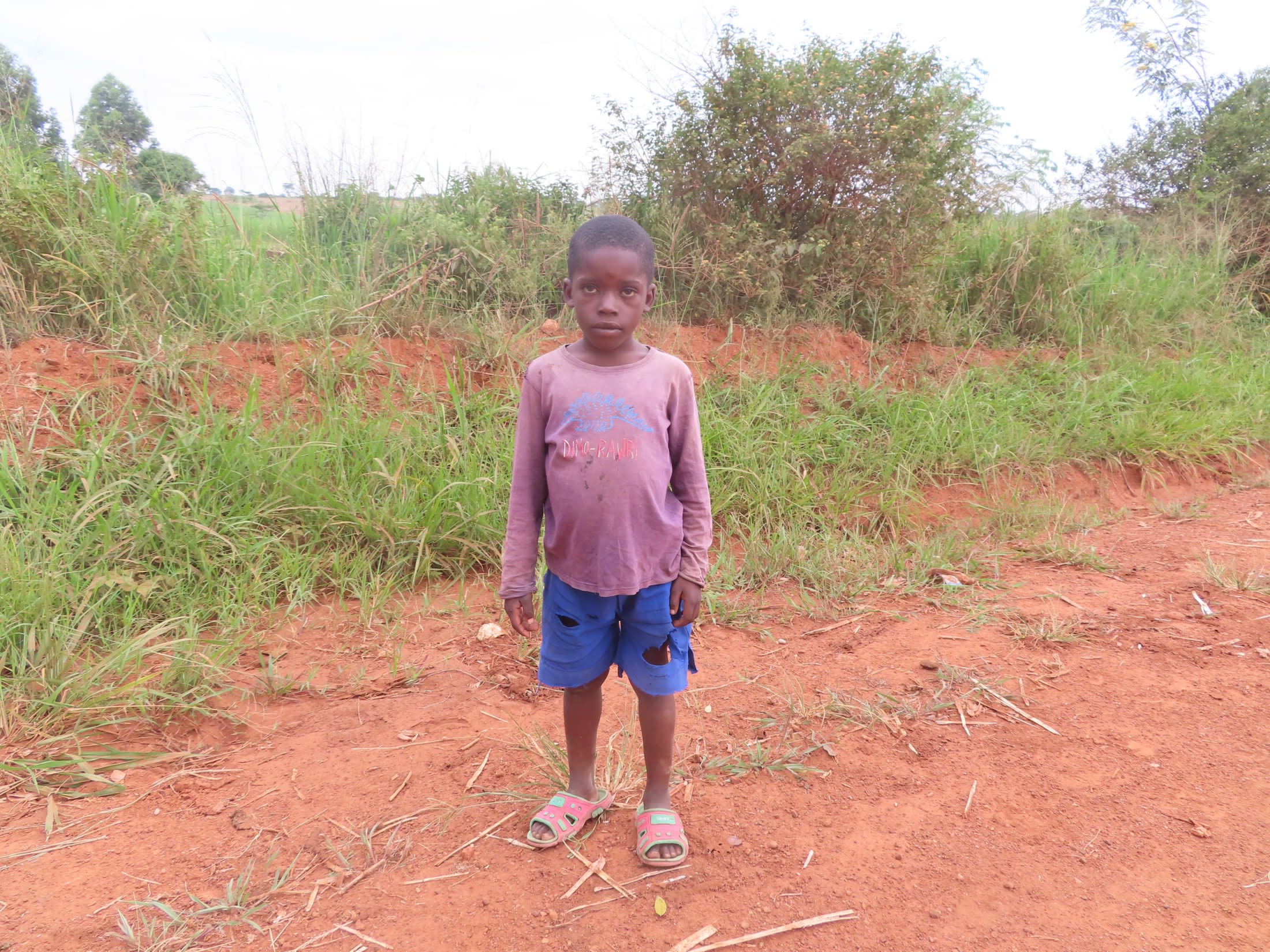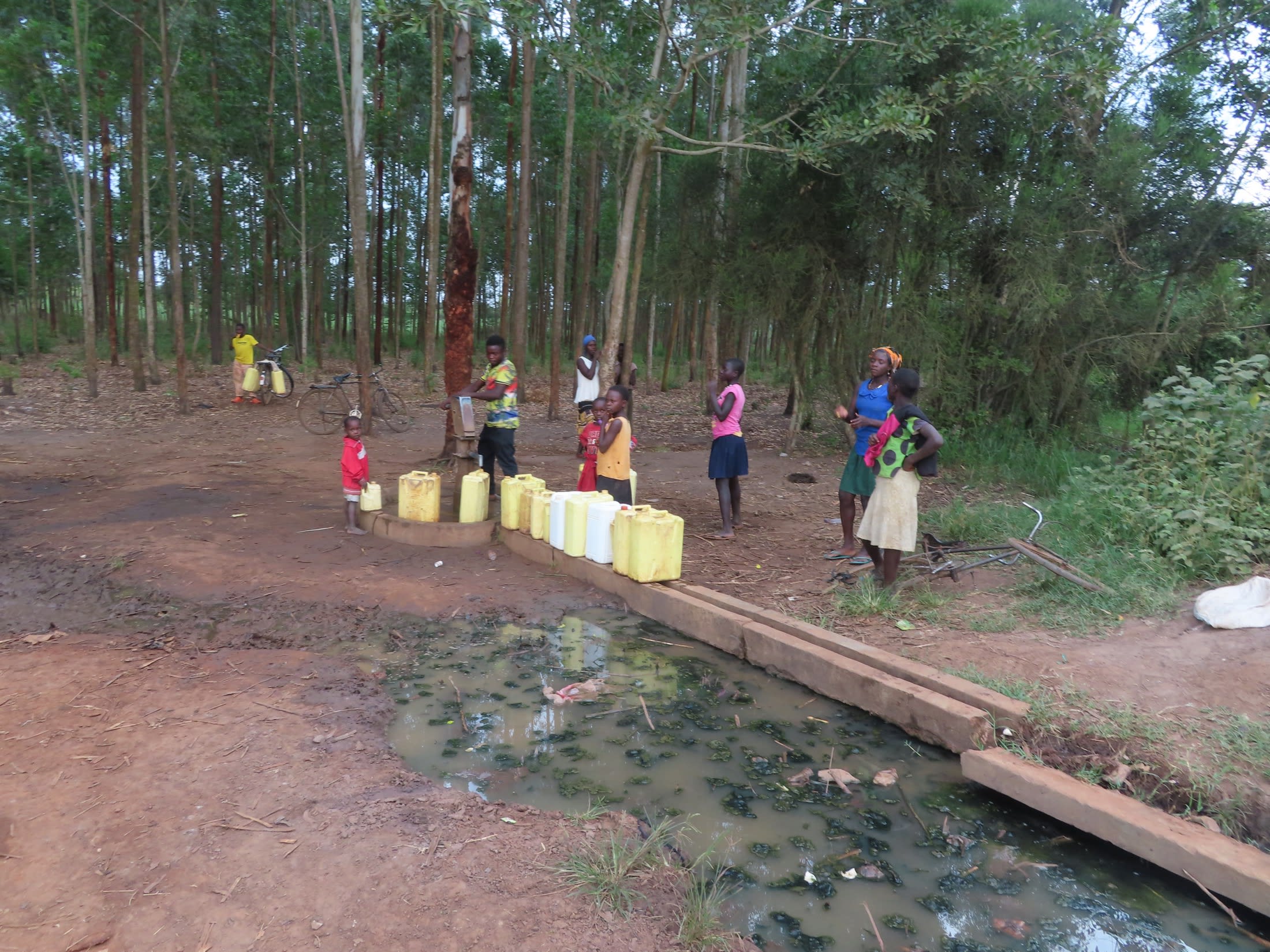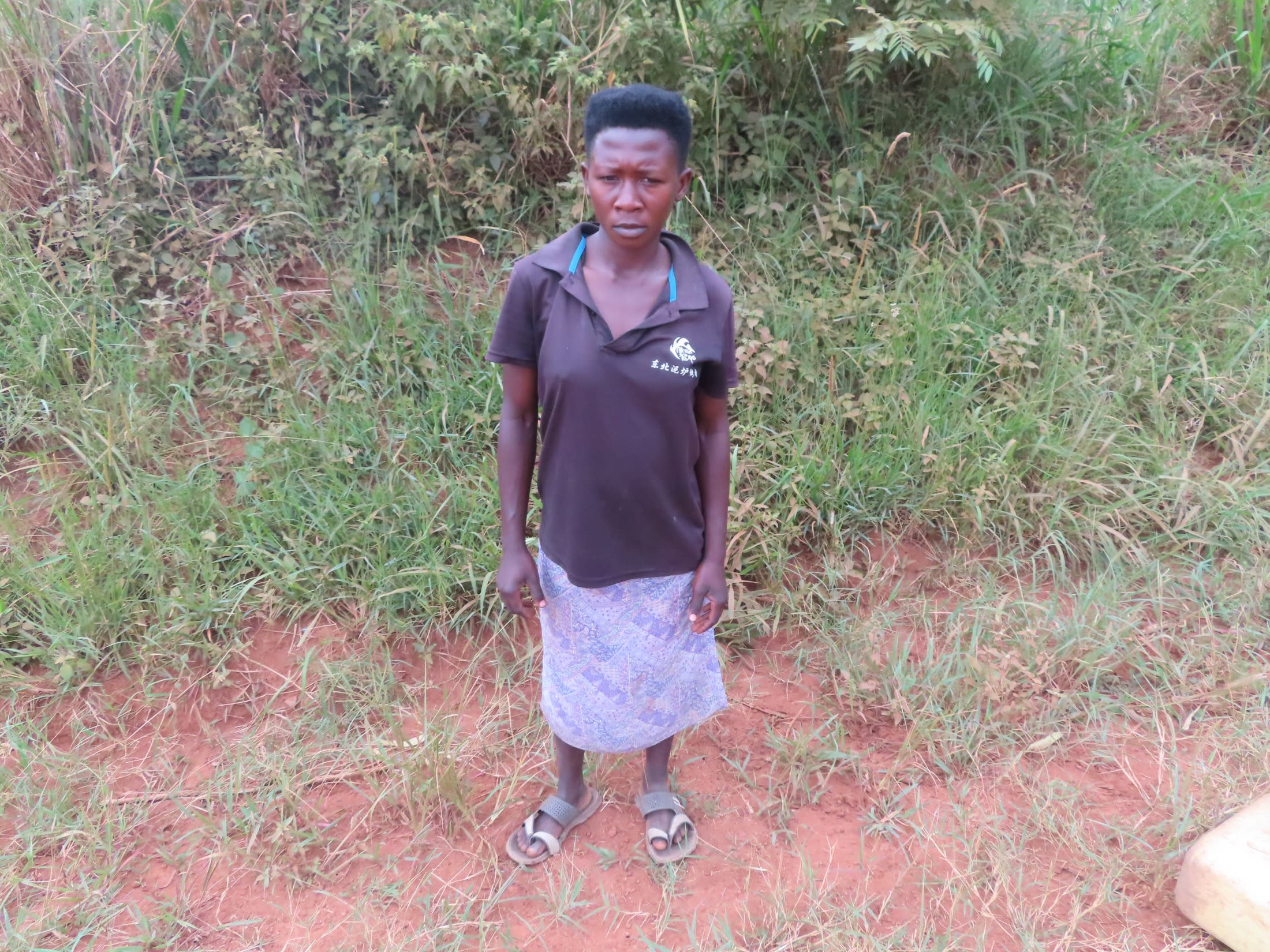The 150 people from Kyabikule struggle to find sufficient water for their daily needs. Currently, they use a well in another community since they do not have a safe water source of their own to rely on.
That would be fine, but they must share the well with three other communities. To say it is overcrowded is an understatement, and the high volume of water users inevitably means people waste their valuable time waiting in long lines.
This is especially true during the dry season when more people flock to the well in search of water. The long lines cause people to miss work or important time tending their crops. As a result, people suffer reduced incomes and food production, making it impossible to purchase things like soap or pay their children's school fees.
"The water point is always crowded, and the [children] are always dragged by adults out of the line even when they are the first [in] the line," 8-year-old Loudren said.

Loudren continued to share that sometimes he is threatened by other water collectors, so he fails to get water and returns home without it. When he fails to get water, he cannot clean his school uniform. Then when he goes to school the next day wearing a dirty uniform, his sanitation teacher calls him to the front during morning assembly, and his friends laugh at him. It spoils his day and his concentration in class.
The borehole is also far away from Kyabikule; the journey takes some people up to two hours, leaving them exhausted. To reach it, people must move along a very busy, dangerous road that is also traveled by speeding sugar cane trucks. Community members, especially parents, fear the trip due to recent incidences of adult and child water users being hit by vehicles.
Loudren shared, "I collect water from the borehole which is in the next village (that is Kyakaki), and it is very far."

"I cannot fetch water because the borehole is very far, about three kilometers (1.85 miles), for one to walk on foot," said Mary (seen below), a 20-year-old housewife and mother of a baby boy.

Instead, Mary's husband collects water using their bodaboda (a motorcycle taxi) and collects six jerrycans per trip to save on fuel costs. The problem comes when Mary's husband is not home, or the motorcycle is experiencing mechanical problems.
"Washing the baby's clothes and bedsheets is hard. [I] cannot mop the house since I have to use the water sparingly in order to have some for preparing food and drinking, and this compromises the hygiene and sanitation of my home," Mary said.
Hopefully, with a well of their own in Kyabikule, people will feel safer and have more time and energy to do their daily tasks so their daily needs can be met. Perhaps they will even dream about the future.
Here’s what we’re going to do about it:
New Borehole
This new borehole is an exciting opportunity for this community! We work with the community to determine the best possible sites for this well.
We conducted a hydrogeological survey and the results indicated the water table is an ideal candidate for a borehole well. Due to a borehole well's unique ability to tap into a safe, year-round water column, it will be poised to serve all of the water needs for this community, even through the dry months.
Community members will help collect the needed construction materials such as sand, rocks, and water for mixing cement. They will also provide housing and meals for the work team, in addition to providing local laborers. We will complement their materials by providing an expert team of artisans and drilling professionals, tools, hardware, and the hand-pump. Once finished, water from the well will then be used by community members for drinking, handwashing, cooking, cleaning, and much more.
Training
Training’s main objectives are the use of latrines and observing proper hygiene practices since these goals are inherently connected to the provision of clean water. Open defecation, water storage in unclean containers and the absence of hand-washing are all possible contaminants of a household water supply. Each participating village must achieve Open Defecation Free status (defined by one latrine per household) prior to the pump installation for this borehole well.
This social program includes the assignment of one Community Development Officer (CDO) to each village. The CDO encourages each household to build an ideal homestead that includes: a latrine, a handwashing facility, a separate structure for animals, a rubbish pit and a drying rack for dishes.
We also implement the Community-Led Total Sanitation (CLTS) approach with each of our village partners. This aims to improve the sanitation and hygiene practices and behaviors of a village. During these sessions, village leaders naturally emerge and push the community to realize that the current practices of individual households – particularly the practice of open defecation – are not only unhealthy, but affect the entire village. CLTS facilitates a process in which community members realize the negative consequences of their current water, sanitation and hygiene behaviors and are inspired to take action. Group interactions are frequent motivators for individual households to build latrines, use them, and demand that other households do the same.
Improved Sanitation
The aim is that all households own an improved latrine. Many households do not use a latrine but use the bush. Due to open defecation, feces are spread all over the village. This leads to waterborne diseases and contamination of groundwater and surface water. Our aim is that the community is able to live a healthy life free of preventable diseases. We endeavor that at the end of our presence in the community, people will have both access to sustainable, clean water and access to sanitation. We have now organized families to form digging groups for latrine construction, and empowered them with tools to use.

 Borehole Well and Hand Pump
Borehole Well and Hand Pump
 Rehabilitation Project
Rehabilitation Project


























